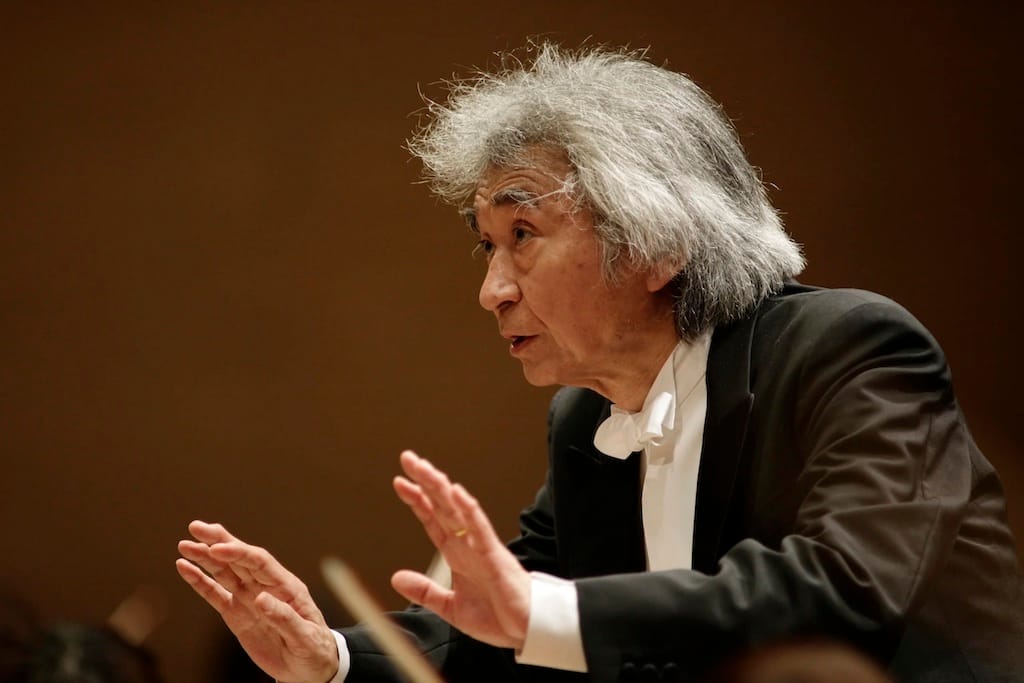Renowned Conductor Seiji Ozawa Passes Away at 88

Seiji Ozawa, the illustrious Japanese conductor celebrated for his advocacy of modern composers and extensive work with prestigious orchestras worldwide, including the San Francisco Symphony, the Toronto Symphony Orchestra, the Vienna State Opera, and the Boston Symphony Orchestra, where he served as music director for a remarkable 29 years, has passed away. He was 88 years old. Ozawa died from heart failure at his home in Tokyo on February 6, 2024.
Early Years and International Success
Ozawa, born on September 1, 1935, in the Japanese-occupied city of Mukden, displayed an early aptitude for music. Following his family’s return to Japan in 1944, he embarked on a journey in music, initially studying piano under Noboru Toyomasu and delving deeply into the works of Johann Sebastian Bach. However, a sports injury during his adolescence redirected his focus towards conducting.
Under the mentorship of Hideo Saito at the Toho Gakuen School of Music, Ozawa’s passion for conducting blossomed. He made a mark in the international music scene after winning the first prize at the International Competition of Orchestra Conductors in Besançon, France, nearly a decade after his injury. This victory opened doors to prestigious opportunities, including studying with renowned conductors Charles Munch and Pierre Monteux at the Berkshire Music Center (now the Tanglewood Music Center).
Ozawa’s talent attracted the attention of Herbert von Karajan, under whose guidance Ozawa flourished in West Berlin. He furthered his studies and garnered valuable experience, eventually catching the eye of Leonard Bernstein, who appointed him as assistant conductor of the New York Philharmonic. Ozawa holds the distinction of being the only conductor to have studied under both Karajan and Bernstein.
During his early career, Ozawa faced a notable controversy with the NHK Symphony Orchestra in Japan, where certain players refused to perform under his direction due to differences in style and personality. Undeterred, Ozawa went on to conduct the Japan Philharmonic Orchestra and continued to ascend in his career.
Boston Symphony Orchestra and Beyond
Ozawa’s tenure as music director of the Boston Symphony Orchestra from 1973 to 2002 marked a period of unparalleled achievement. His 29-year tenure surpassed that of any previous music director, and he left an indelible imprint on the orchestra’s legacy. Under his leadership, the BSO flourished, earning international acclaim and numerous accolades.
Notable highlights of Ozawa’s career include conducting monumental performances, such as Beethoven’s Ninth Symphony at the Peking Central Philharmonic in 1979, breaking a long-standing ban on Western music in China. He was also instrumental in founding the Saito Kinen Orchestra in 1992, fostering collaborations between Japanese and international musicians.
Ozawa’s advocacy of 20th-century classical music and premieres of works by composers such as György Ligeti and Olivier Messiaen solidified his reputation as a visionary conductor. His unorthodox conducting wardrobe, characterized by a white turtleneck instead of traditional formal attire, further distinguished him on the international stage.
Honours and Legacy
Throughout his illustrious career, Ozawa received numerous awards and honors, including Emmy Awards for his contributions to cultural programming and Japan’s prestigious Order of Culture. He held honorary doctorate degrees from esteemed institutions and was widely recognized as a cultural icon.
Despite facing health challenges, including battles with esophageal cancer and pneumonia, Ozawa remained dedicated to his craft until his final days. His last concert took place in November 2022 with the Saito Kinen Orchestra, reflecting his enduring passion for music.
Seiji Ozawa’s legacy transcends borders, inspiring generations of musicians and audiences worldwide. His profound impact on the classical music landscape will be remembered for years to come, ensuring that his remarkable contributions endure as a testament to his extraordinary talent and dedication.





